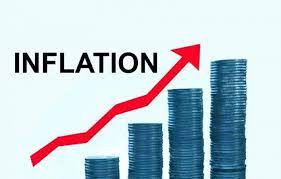The consumer price index (CPI), which measures the rate of change in prices of goods and services, increased to 25.80 percent in August 2023, up from 24.08 percent in the previous month. This represents an increase in the rate of change in prices of goods and services.
According to the Consumer Price Index (CPI) data for August 2023 that was released on Friday by the National Bureau of Statistics (NBS), the inflationary trend in the country was led by rises in food costs.
According to research conducted by TheCable Index, the national inflation rate reached its highest level in July for the first time in more than a decade.
Inflation in Nigeria has not been above 24 percent since September of 2005, when it hit a rate of 24.3 percent, the last time this level was attained.
The most recent figure indicates that there has been an increase in the nation’s inflation rate for the eighth consecutive month this year.
According to the findings of the NBS report, the headline inflation rate for August 2023 shows an increase of 1.72 percentage points when compared to the rate that was recorded in July.
“On a year-on-year basis, the headline inflation rate was 5.27% points higher compared to the rate recorded in August 2022, which was 20.52%,” NBS said.
“This shows that the headline inflation rate (year-on-year basis) increased in August 2023 when compared to the same month in the preceding year (i.e., August 2022).”
The Bureau of Labour Statistics reported that the annualised rate of headline inflation in August 2023 was 3.18 percent, which is an increase of 0.29 percentage points in comparison to the rate that was recorded in July 2023 (2.89 percent).
This indicates that on average, general prices were 0.29 percent higher in August 2023 when compared to the previous month’s level in July 2023.
“The percentage change in the average CPI for the twelve-month period ending August 2023 over the average of the CPI for the previous twelve-month period was 22.38%, showing a 5.31% increase compared to 17.07% recorded in August 2022,” the NBS said.
Read also: Nigeria’s broadband penetration drops by 2.5 million
The inflation in August 2023
According to the report, the rate of food inflation experienced a significant increase, reaching 29.34% in the month of August in the year 2023. When compared to the rate that was recorded in the month of August 2022 (23.12 percent), this was a 6.22 percentage point increase.
“The rise in food inflation on a year-on-year basis was caused by increases in prices of Oil and fat, Bread and cereals, Fish, Fruit, Meat, Vegetables and Potatoes, Yam and other Tubers, Vegetable, Milk, Cheese and Eggs,” the report reads.
“On a month-on-month basis, the Food inflation rate in August 2023 was 3.87%, this was 0.41% points higher compared to the rate recorded in July 2023 (3.45%).”
According to the data agency, the rise in month-over-month food inflation was caused by rises in the cost of bread and cereals, potatoes, yam and other tubers, fish, oil and fat, coffee, tea, and cocoa. Additionally, the price of bread and cereals rose because of increased demand.
“The average annual rate of food inflation for the twelve months ending August 2023 over the previous twelve-month average was 25.01%, which was 5.99% points increase from the average annual rate of change recorded in August 2022 (19.02%),” the data body said.
High price for food
According to the National Bureau of Statistics, the CPI is weighted by consumption expenditure patterns, which can vary greatly between states and locales.
In essence, the weight that is given to a specific food or non-food item could be different from one state to the next, which makes it unwise to compare consumption baskets between states and could potentially lead to misleading results.
During the time period under consideration, inhabitants of Kogi, Lagos, and Kwara paid a higher average price for food, according to the research.
“In August 2023, Food inflation on a year-on-year basis was highest in Kogi (38.84%), Lagos (36.04%), and Kwara (35.33%), while Sokoto (20.09%), Nasarawa (24.35%) and Jigawa (24.53%) recorded the slowest rise in Food inflation on a year-on-year basis,” NBS said.
However, the agency reported that on a month-to-month basis, food inflation in August 2023 was highest in Rivers (7.12 percent), Kwara (5.89 percent), and Kogi (5.80 percent). On the other hand, Sokoto (0.50 percent), Abuja (1.30 percent), and Niger (1.40 percent) registered the slowest rise in food inflation.
















